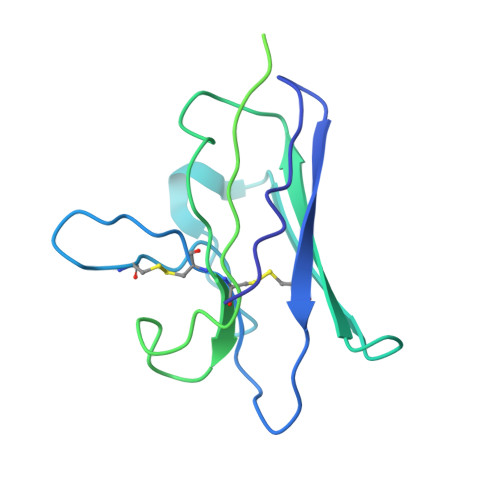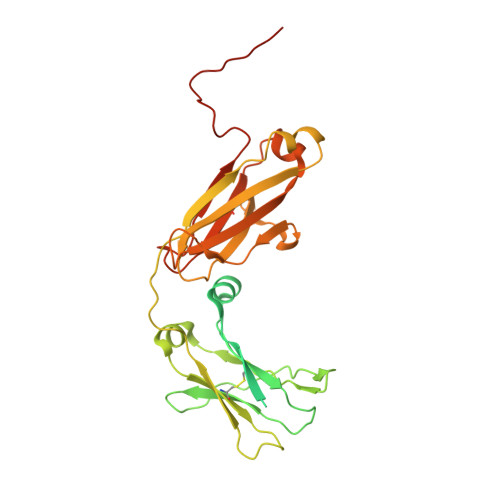Structural basis for Fc receptor recognition of immunoglobulin M.
Chen, Q., Menon, R.P., Masino, L., Tolar, P., Rosenthal, P.B.(2023) Nat Struct Mol Biol 30: 1033-1039
- PubMed: 37095205
- DOI: https://doi.org/10.1038/s41594-023-00985-x
- Primary Citation of Related Structures:
8BPE, 8BPF, 8BPG - PubMed Abstract:
Immunoglobulin Fc receptors are cell surface transmembrane proteins that bind to the Fc constant region of antibodies and play critical roles in regulating immune responses by activation of immune cells, clearance of immune complexes and regulation of antibody production. FcμR is the immunoglobulin M (IgM) antibody isotype-specific Fc receptor involved in the survival and activation of B cells. Here we reveal eight binding sites for the human FcμR immunoglobulin domain on the IgM pentamer by cryogenic electron microscopy. One of the sites overlaps with the binding site for the polymeric immunoglobulin receptor (pIgR), but a different mode of FcμR binding explains its antibody isotype specificity. Variation in FcμR binding sites and their occupancy reflects the asymmetry of the IgM pentameric core and the versatility of FcμR binding. The complex explains engagement with polymeric serum IgM and the monomeric IgM B-cell receptor (BCR).
- Structural Biology Science Technology Platform, The Francis Crick Institute, London, UK.
Organizational Affiliation:



















